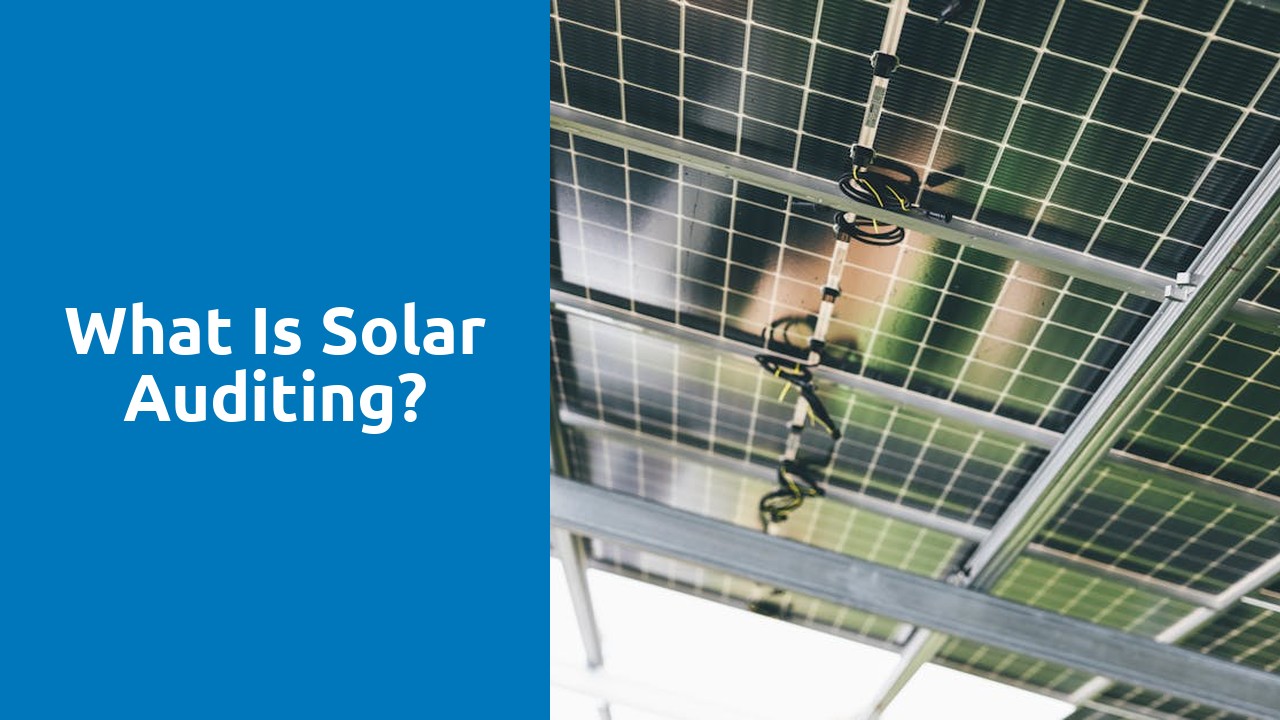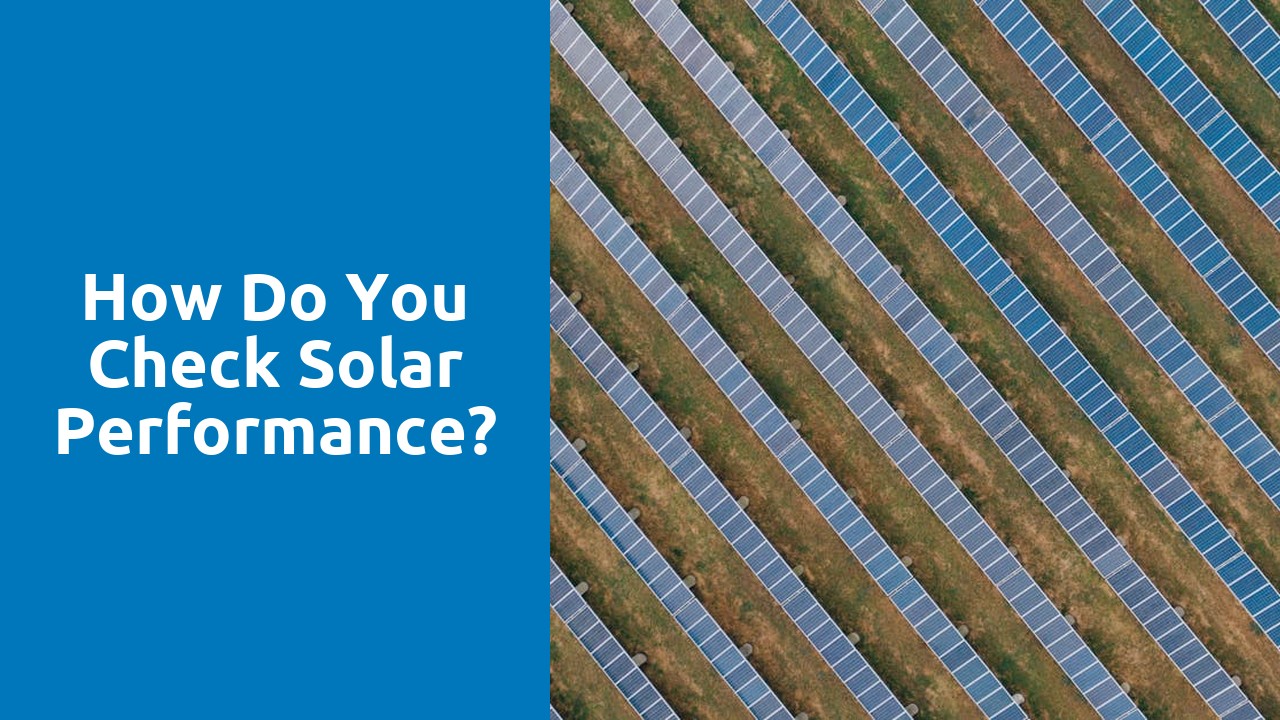
Finding a Trusted Solar Audit Provider
When considering a provider for solar panel system performance auditing, it is essential to conduct thorough research to find a trusted and reputable company. Begin by seeking recommendations from friends, family, or colleagues who have previously used solar audit services. Additionally, explore online reviews and ratings to gauge the overall satisfaction levels of past clients with a particular solar audit provider.
Furthermore, investigate the qualifications and experience of the solar audit company to assess their expertise in the field. Look for certifications such as being Clean Energy Council Accredited or having relevant qualifications in electrical engineering. Experience matters significantly in the solar industry, so opt for a provider with a proven track record of conducting thorough and accurate solar panel system performance audits.
Evaluating Qualifications and Experience
When assessing the qualifications and experience of a potential provider for Solar Panel System Performance Auditing, it is crucial to delve into their background thoroughly. Look for companies or individuals who possess relevant industry certifications, such as Clean Energy Council accreditation for solar design and installation. Experience is similarly essential, so inquire about previous solar audit projects they have conducted and request references for validation. A well-established track record indicates a sound understanding of solar systems and the intricacies involved in conducting comprehensive audits.
Additionally, consider the level of expertise the provider brings to the table. An expert in the field of solar auditing will not only possess technical knowledge but also demonstrate a keen eye for detail and a methodical approach to assessing system performance. Engaging with seasoned professionals can instill confidence in the accuracy and reliability of the audit findings, paving the way for effective maintenance and improvements to enhance solar system efficiency.
Common Solar Audit Findings
Solar Panel System Performance Auditing is crucial to ensuring the efficiency and longevity of your solar energy system. One common finding during audits is the accumulation of debris such as leaves, dirt, and bird droppings on the solar panels. This buildup can obstruct sunlight absorption and result in reduced energy production. Regular cleaning and maintenance are essential to optimise system performance and output.
Another typical audit observation is the presence of shading on the solar panels caused by trees, neighbouring buildings, or other obstructions. Even partial shading can significantly impact the overall efficiency of the system. Identifying and mitigating shading issues through strategic panel placement or tree trimming can enhance energy generation and maximise the return on investment of your solar panels.
Identifying Maintenance and Repair Needs
Identifying Maintenance and Repair Needs in the realm of Solar Panel System Performance Auditing is crucial for ensuring the optimal functioning of your solar setup. When conducting audits, professionals are diligent in examining the state of your system to pinpoint any required repairs or maintenance activities. These could range from addressing loose or damaged wiring to cleaning solar panels for improved efficiency.
Moreover, Identifying Maintenance and Repair Needs aids in mitigating potential system failures or performance issues in the long run. By proactively identifying any areas that require fixing or adjustments, you can enhance the longevity of your solar panel system and avoid unexpected breakdowns. Regular audits focusing on maintenance needs ensure that your system operates at its peak efficiency, promoting sustainability and cost-effectiveness.
Solar Audit Frequency Recommendations
For optimal performance and longevity of your solar panel system, regular Solar Panel System Performance Auditing is essential. The frequency of these audits depends on various factors such as the age of the system, local climate conditions, and the manufacturer's recommendations. Generally, it is recommended to conduct a comprehensive solar audit at least once every 1-2 years to ensure that your system is operating efficiently and effectively.
However, in certain situations where the system is exposed to harsh weather conditions or if there have been noticeable changes in energy production, it is advisable to increase the frequency of audits. By staying proactive and scheduling regular solar audits, you can identify any potential issues early on and address them promptly, ultimately saving you money on costly repairs and maximizing the performance of your solar panel system.
Determining Ideal Inspection Intervals
After conducting a thorough solar audit to assess the current status of a solar panel system, determining the ideal inspection intervals is crucial for efficient performance. The frequency of inspections varies depending on several factors such as the age of the system, geographical location, weather conditions, and the manufacturer's recommendations. Solar panel system performance auditing is essential to catch any issues early on, before they escalate into costly problems. Regular inspections help in maintaining optimal functioning and prolonging the lifespan of the system.
To ensure the efficient operation of a solar panel system, experts recommend scheduling annual inspections as a baseline. However, in regions with extreme weather conditions or high levels of dust or pollution, more frequent inspections may be necessary. Understanding the ideal inspection intervals not only enhances the performance of the system but also provides peace of mind to the system owner. By adhering to a consistent inspection schedule, any potential concerns can be identified and rectified promptly to avoid disruptions in energy production.
FAQS
What is solar auditing?
Solar auditing is a process of assessing and evaluating the performance, efficiency, and safety of a solar energy system. It involves a thorough inspection of the solar panels, inverters, wiring, and other components to ensure they are functioning optimally.
Why is solar auditing important?
Solar auditing is important to identify any issues or inefficiencies in the solar energy system that may be impacting its performance. Regular audits can help maximize energy production, prevent potential breakdowns, and ensure the longevity of the system.
How often should I conduct a solar audit?
It is recommended to conduct a solar audit at least once a year to ensure the system is working efficiently. However, if you notice any drop in performance or suspect issues with the system, it is advisable to conduct an audit sooner.
What are some common findings during a solar audit?
Common findings during a solar audit include shading issues impacting panel efficiency, inverter malfunctions, loose wiring, debris buildup on panels, and potential safety hazards. Identifying these issues early can help prevent further damage and improve system performance.
How do I find a trusted solar audit provider?
When looking for a solar audit provider, ensure they have the necessary qualifications and experience in conducting solar audits. Look for certifications, reviews, and references to verify their expertise in assessing solar energy systems.
